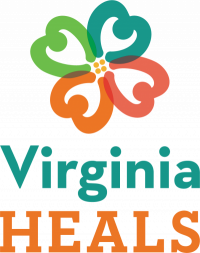Toolkit
A number of resources have been developed to support community and state-level implementation of the Trauma-Informed Model of Service Delivery. The Virginia HEALS Toolkit includes:
The Community Resource Mapping Facilitation Guide can be used within local communities to identify current resources, learn about gaps between current resources and community needs, and provide an opportunity to cultivate new partnerships and relationships across agencies that work with children and youth in the community. An e-Learning course is available to support this guide.
The Trauma-Informed Screening Course is designed to assist service child, youth, and family serving providers in integrating an understanding of trauma into their daily practice and provide guidance as to the importance of integrating screening for trauma into their work with children and families. Specific attention will be given to how to create and promote emotional safety before, during, and after a trauma disclosure as well as addressing concerns about re-traumatization.
The Screening for Experiences and Strengths (SEAS) is a brief screening tool that has been developed by Virginia HEALS to identify trauma and victimization experiences and symptoms in children, youth, and transitioning young adults. The Screening for Experiences and Strengths E-Learning Course will provide guidance on preparing to screen, how to access and administer SEAS, and how to respond to trauma disclosures. Completion of training on SEAS is required to access the screening tool. A report which describes the piloting and evaluation of the screening tool is also available.
The Referral and Response Protocol provides guidance to agency/organizational leadership and multi-disciplinary teams on specific components that support successful referrals and referral responses and outlines a distinct process for front line service providers on how to link children, youth, and families to needed services and support. An e-Learning course is available to support the protocol.
The Family Engagement Guide provides child, youth, and family serving agencies and systems with guidance on how and why to meaningfully engage family members in decision-making processes around the content and direction of services, interventions, and/or referrals made in the course of case management and planning. An e-Learning course is available to support this guide.
Trauma-Informed Agency Assessment
The Trauma-Informed Agency Self-Assessment was created for agencies and organizations from a variety of fields (child welfare, behavioral health, public health, juvenile justice, education, early childhood development, housing, and victim advocacy) to assess where they fall in a continuum of trauma-informed care and to engage them in a process of setting agency improvement goals.
The Grant Application Development Menu for Funders offers options for funders to consider when developing Requests for Applications or Grant Guidelines to encourage grantees to provide quality, comprehensive, trauma-informed services for children, youth, and their families.
